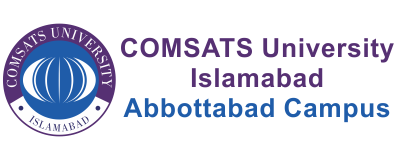Biotechnology encompasses the application of biological processes, organisms, or systems to develop products, technologies, and solutions that improve various sectors, including healthcare, agriculture, industrial processes, and environmental sustainability. It involves using living organisms or their components to create, modify, or enhance products or processes for the benefit of society. A few of the recent groundbreaking products developed via biotechnology companies include vaccines, biopesticides, biofuels, and stress-tolerant crops.
Eligibility Criteria
- F.Sc. or A level (premedical or equivalent) with 50% marks
- 50% aggregate after NTS NAT Test
- Fulfillment of all other university rules and regulations
Scholarships
The following scholarships are available for the students
- Shining Star Scholarship
- Sibling Fee Waiver
- 4 GPA holder scholarship (75% tuition fee off)
- Female Need Based (75 % Tuition Fee Waiver)
- HEC Need-Based Scholarship
- Dhamtor Scholarship (50 % Tuition Fee Waiver)
- Top Merit List Scholarships
- Top 10 Board Positions (75 % Tuition Fee Waiver)
- Special Scholarships for Backward Areas (50 % Tuition Fee Waiver)
Why Study at the Department of Biotechnology
Highly qualified Ph.D. faculty members
State-of-the-art research facilities for
- Bioinformatics
- Biofuels
- Biotechnology
- Genetic Engineering
- Human Molecular Genetics
- Microbiology
- Molecular Biology
- Plant Tissue Culturing
- High Tech Lab
Career Opportunities
- Universities and Colleges
- Research Organizations
- Federal and Provincial Ministries
- National and International Health Research Centers (NARC, NIBGE, NIH)
- Molecular Diagnostic Laboratories
- Seed, Pharmaceutical, Food, and Beverages Industries
- Multinational Organizations (FAO, ICARDA, PIONEER, CIMMYT, IRRI, etc.)
Research Areas
- Biological synthesis and application of nanoparticles
- Molecular Investigations of human genetic disorders
- Application of novel microbial species and microbial enzymes for industrial applications
- Exploring biodiversity for novel phytochemicals and genetic manipulation in plants for higher secondary metabolite production, yield, and stress tolerance
- Bioremediation and phytoremediation of degraded soils, wastewater, and water bodies by exploring and manipulating useful microbes and enzymes
- Bacterial biofilms and antimicrobial activity of natural and synthetic compounds
- Computational modeling of enzymatic reactions
- In silico modeling of antimicrobial agents

